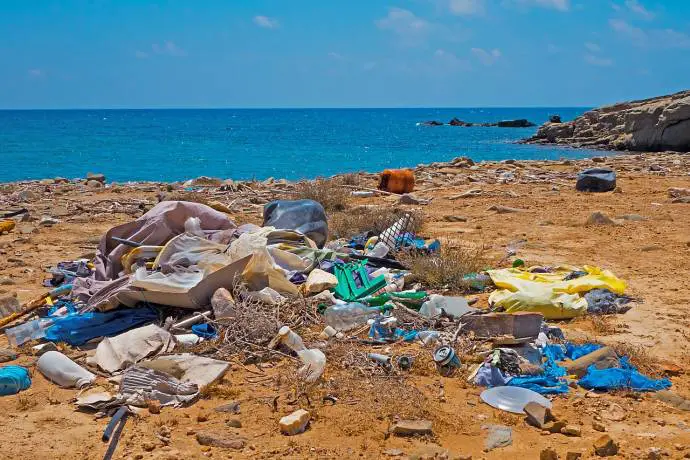Časoris is an online newspaper aimed at children. Each week we’ll take an article and post it here as an English-Slovene dual text.
Evropa si želi manj plastičnih smeti
Europe wants less plastic waste
Written by Mojca Štruc, translated by JL Flanner and G Translate
Plastični odpadki se kopičijo vsepovsod: na smetiščih, v mestih, v hribih, v morju.
Plastic waste accumulates everywhere: at dumps, in cities, in the mountains, in the sea.
Na svetu jih je toliko, da bi lahko prekrili Slovenijo, kup smeti pa bi bil visok 14 metrov.
There’s so much plastic waste in the world that it could cover Slovenia, and the pile of trash would be 14 meters high.
Nič čudnega torej, da je 87 odstotkov Evropejcev zaskrbljenih.
It’s no wonder that 87 percent of Europeans are worried.
Nekateri smo dovolj ozaveščeni, da se trudimo živeti brez nepotrebnih plastičnih izdelkov. Med njimi so slamice, vrečke, jedilni pribor in lončki za kavo.
Some of us are sufficiently aware of the problem that we are trying to live without unnecessary plastic products. Among these are straws, bags, cutlery and disposable coffee pods.
A kljub trudu posameznikov ti izdelki še niso izginili s prodajnih polic.
But despite the efforts of individuals, these products have not disappeared from supermarket shelves.
Greenpeaceovo poročilo kaže, da mnoga podjetja uporabljajo vse več plastike za enkratno uporabo.
A Greenpeace report shows that many companies use more and more disposable plastics.
Da se to ne bi več dogajalo, bi lahko poskrbeli politiki.
If this is going to stop, it will need work from politicians.
Evropski poslanci danes sprejemajo Direktivo o zmanjšanju vpliva nekaterih plastičnih proizvodov za enkratno uporabo na okolje.
MEPs today adopted a directive to reduce the environmental impact of certain disposable plastic products.
Čeprav večina politikov direktivo načelno podpira, še ne vemo, ali bo res sprejeta.
Although most politicians support the directive in principle, we do not yet know if it will be accepted.
Ni namreč čisto jasno, katere plastične izdelke naj bi direktiva omejila ali prepovedala.
It is not quite clear which plastic products should be restricted or banned by the directive.
Tisti, ki niso zadovoljni s sedanjim predlogom, zanj morda ne bodo glasovali, četudi se zavedajo, da moramo vsi skupaj nekaj narediti.
Those who are not happy with the current proposal may not vote for it, even if they think that we must do something.
Stališče do direktive je sprejela tudi slovenska vlada. Sporočila je, da jo načeloma podpira.
The Slovenian Government has adopted the directive, saying that it supports it in principle.
Na hrvaškem otoku Zlarin pa so se domačini kar sami odločili, da ne bodo več uporabljali plastike. Pravijo, da bodo to lahko izpeljali. Kupci bodo morali za vsak plastični lonček plačati kavcijo, torej nekaj kun drobiža, ki jo bodo dobili nazaj, ko bodo lonček vrnili.
On the Croatian island of Zlarin, the locals themselves decided not to use plastics again. They say they can do this. Customers will have to pay a deposit for each plastic pot, that is, a few kuna that will get them back when the pot is returned.
Vse pa bo odvisno od ljudi, pravijo pobudniki ideje Zlarin – otok brez plastike.
Everything will depend on people, say the initiators of the idea of Zlarin - an island without plastic.
Zadnja novica
Latest news
Poslanci so podprli prepoved plastičnih izdelkov za enkratno uporabo.
MEPs backed the ban on disposable plastic products.
Read more stories and improve your Slovene at Časoris, or read another English-Slovene dual text here.






